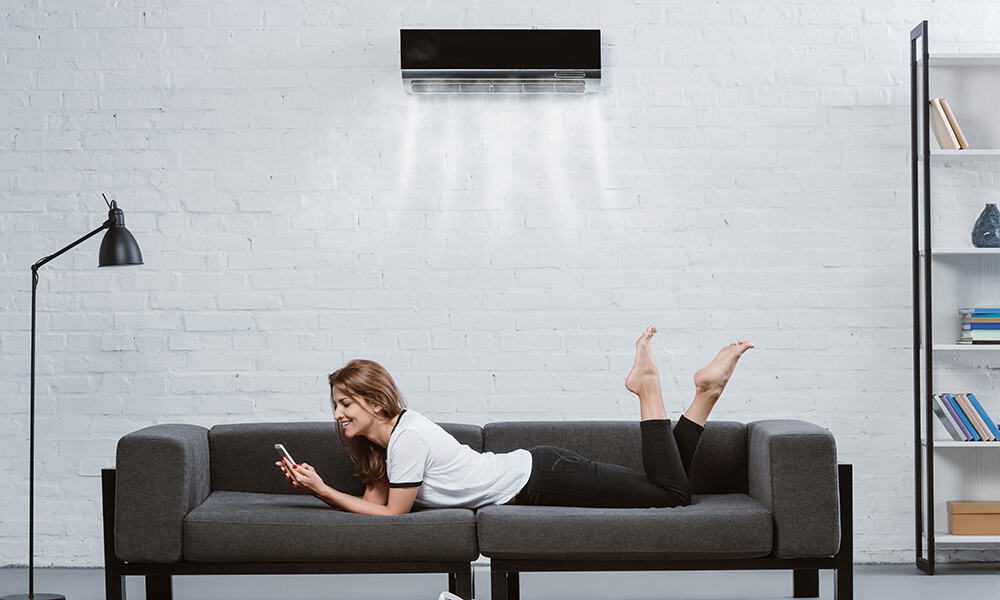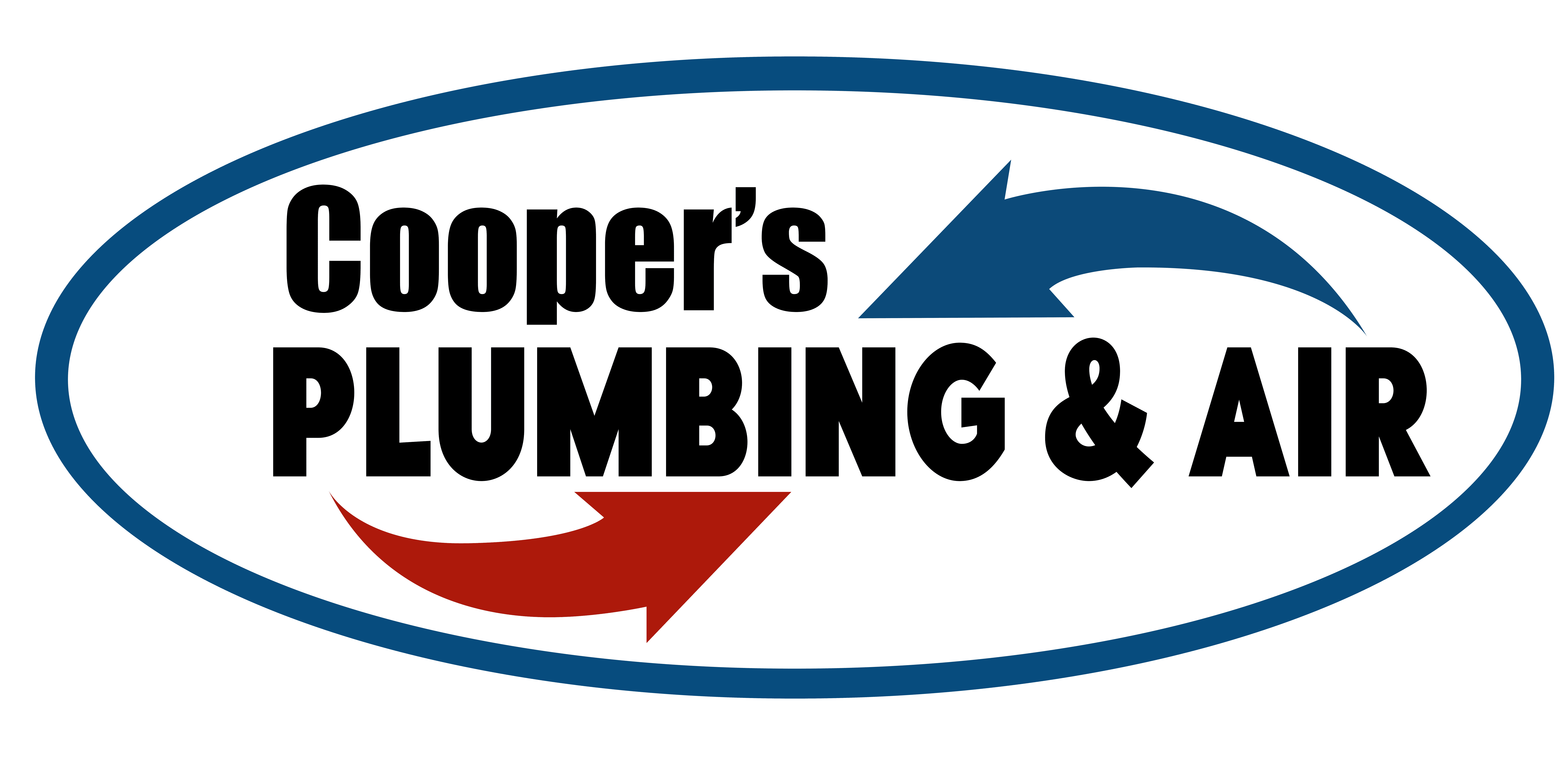
You probably already know that your air conditioner cools your home by removing heat from the indoor air. But what about humidity? Does air conditioning reduce humidity?
Excess humidity can make your home feel unusually warm and uncomfortable, even when your indoor temperatures reach desired levels.
As the go-to heating and air company in Tallahassee, FL, Cooper’s Plumbing & Air explores how an air conditioner works, delving deeper into how running your air conditioner affects the indoor humidity level.
How an Air Conditioner Works
During normal operation, your air conditioner removes excess humidity as it cools the air in your home.
A fan blows warm indoor air from the room over the evaporator coil. The coil contains cold refrigerant, which absorbs heat from the air as moisture condenses on the coil. The condensation drips into the condensate pan before it drains away. Although sometimes an issue may arise, such as when your fan stops spinning, which requires an immediate system inspection.
As a result, the system blows back cool, dehumidifier air into the indoor space, providing relief from the heat and humidity. Provided you run your AC unit regularly to maintain cool indoor temperatures, it should also effectively control humidity levels.
Ways To Beat Excessive Humidity
While running your air conditioner may effectively lower humidity to ideal levels (30 to 50% relative humidity), your air conditioner may struggle to keep up if you live in an excessively humid area. Factors such as poor ventilation can also make your home excessively humid.
Moreover, running dishwashers and washing machines too often, long showers, and plumbing leaks can lead to higher relative humidity levels. The following tips may solve your high humidity problem:
Run a Dehumidifier
If you live in a humid climate and don’t already have a dehumidifier, consider getting one. You can opt for a small unit that focuses on one room at a time or a whole-house model.
A whole-house dehumidifier, working hand in hand with your air conditioning system, will make every room in your home more comfortable. These units can also operate independently of your cooling system to remove humidity on those mild days.
Ventilate Your Home
Poor ventilation coupled with high humidity levels will make your home feel stale and sticky. Try to remove as much humidity as you can at the source by running an exhaust fan in the bathroom, laundry, and kitchen whenever you shower, do the laundry, or cook.
This technique will lower humidity levels in these respective rooms and keep them more comfortable. If the weather allows, open a window to let in fresh air.
Wipe Down Wet Surfaces
Wet surfaces, from your shower tiles to kitchen counters, raise indoor humidity levels and may promote mold growth. Wipe these wet surfaces promptly with a towel to lower relative humidity levels.
Change the Air Filter Regularly
Does air conditioning reduce humidity? Yes, to some extent, but your AC unit needs regular maintenance to work efficiently. Without regular changes, your filter will trap dust and debris and even harbor mold if it becomes wet.
Running your AC with a clogged filter, therefore, may compromise your indoor comfort by introducing mold spores and moisture in the air.
Change the air filter according to manufacturer recommendations or more often if you have pets or people with allergies at home. This minor routine maintenance task will improve indoor air quality and lower humidity levels.
Clean the Evaporator Coil
A dirty coil can’t do its job of absorbing heat and moisture efficiently. If your cooling system struggles to reach the desired temperature, your unit may have a dirty coil.
Trust our seasoned HVAC crew to clean the evaporator coil, effectively improving its ability to cool and dehumidify your home.
Check the Refrigerant Charge
Low refrigerant levels can impair your AC unit’s functionality and effectiveness. If left unchecked, your evaporator coil may freeze, or the compressor may fail.
Despite popular belief, only a certified HVAC expert can resolve a refrigerant leak and recharge the system as needed, ensuring optimal AC unit performance and compliance with safety standards.
Adjust the Fan Speed
Optimizing the fan speed can prove challenging. A high fan speed helps your AC unit meet cooling demand on the hottest days, but this may also cause shorter cycles that hinder effective dehumidification.
Contact an experienced HVAC technician to help you choose the ideal fan speed for your comfort needs.
Set the AC Fan to Auto
When warm air condenses and collects on the evaporator coil, it needs some time to accumulate before dripping into the condensate pan and draining away. Running the AC fan constantly interferes with this process, potentially blowing back moisture into your home.
To prevent this from happening, set the fan to “auto” so that it only runs when the compressor turns on. You should find it easy to adjust this setting on your thermostat.
Replace Your Cooling System
Do you experience inconsistent comfort issues? Perhaps you have an aging air conditioning unit that can no longer meet your comfort needs. Replacing the old unit with a newer unit should solve your humidity situation.
Newer cooling systems boast advanced features with enhanced cooling and dehumidifying performance. Consider expert advice when selecting an HVAC for your property.
The Bottom Line
While your air conditioning unit has some dehumidifying properties, it isn’t a dehumidifier. Don’t assume your AC unit can substitute for a dehumidifier because it may need to run longer than usual to combat the added discomfort of excess humidity.
Call Cooper’s Plumbing & Air Today for Top-Tier Plumbing and HVAC Solutions
Does air conditioning reduce humidity? An AC unit can cool your home to make it feel less humid, but it’s not built specifically for dehumidification. Are you in the market for a plumbing and HVAC partner you can count on? Trust Cooper’s Plumbing & Air.
We’ve provided quality services in SW Georgia and NW Florida since 1997 and stay committed to delivering excellence. Do you suspect a bad AC compressor? Reach out any time 24/7/365 for emergency services.
Call Cooper’s Plumbing & Air at (866) 464-7132 to schedule fairly-price, friendly, and on-time plumbing or HVAC service in Tallahassee.
